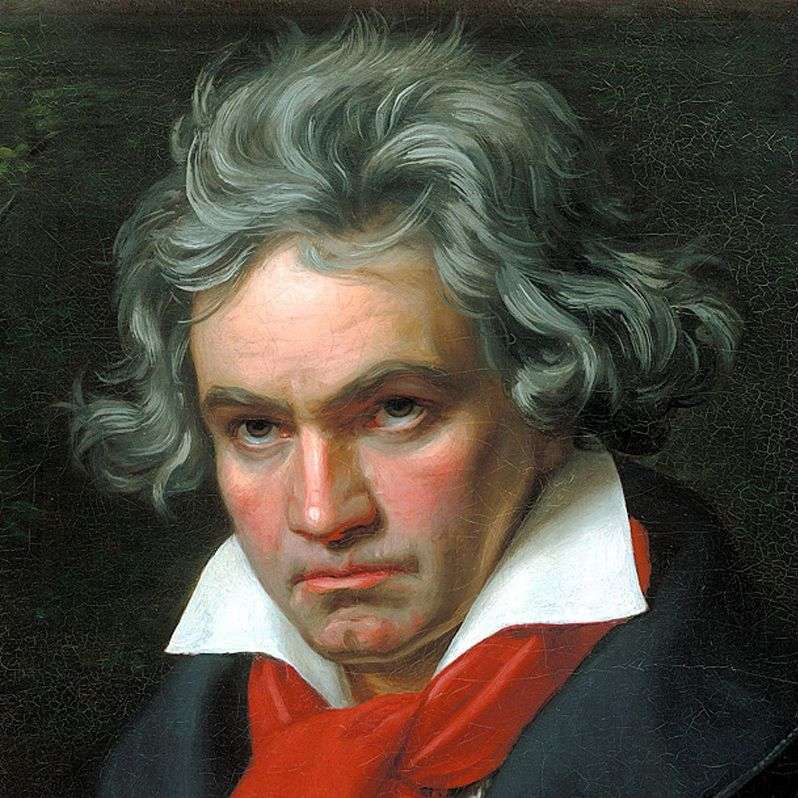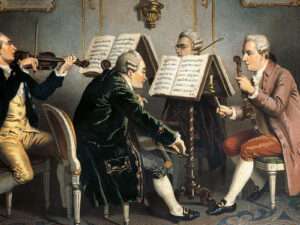Introduction
Born in December 1770, Ludwig van Beethoven was a German composer and pianist who remains one of the most admired composers in the history of Western music. His works, which span the transition from the Classical period to the Romantic era in classical music, continue to be among the most performed pieces in the classical music repertoire.
Beethoven’s influence on the world of music is immeasurable. His innovative compositions combined vocals and instruments in a way that had never been done before, pushing the boundaries of music and setting the stage for future composers. His works, such as the iconic Symphony No. 5 and Symphony No. 9, are still celebrated today for their emotional depth and complex musical structures.
Early Life and Background
Ludwig van Beethoven was born in Bonn, Germany, in December 1770. His father, Johann van Beethoven, was a musician at the court of the Elector of Cologne, and his mother, Maria Magdalena Keverich, was a daughter of the head chef at the court of the Archbishopric of Trier. Beethoven’s musical talent was apparent from an early age, and his father, recognizing the potential in his son, nurtured his musical abilities.
Beethoven’s family background played a significant role in shaping his musical journey. His grandfather, Ludwig van Beethoven the Elder, was also a musician who had served as Kapellmeister at the court of the Elector of Cologne. The young Beethoven was deeply influenced by his grandfather’s musical accomplishments and aspired to achieve similar success.
In his early years, Beethoven studied with several local musicians. By the age of 12, he had already composed a number of works and was earning a living as a court musician, playing the organ and the harpsichord. His early exposure to music and the rigorous training he received set the foundation for his future success as a composer.
For more detailed information about Beethoven’s life and work, you can visit his Wikipedia page or read his detailed biography on Britannica.
Beethoven’s Compositions
Beethoven’s compositions are renowned for their emotional depth, complex structures, and innovative use of form. His works, which span a variety of genres including symphonies, sonatas, concertos, and string quartets, have had a profound impact on the evolution of Western classical music.
Among Beethoven’s most famous compositions are his nine symphonies, particularly Symphony No. 5 and Symphony No. 9. Symphony No. 5, with its iconic four-note opening motif, is one of the best-known compositions in classical music. Symphony No. 9, also known as the “Choral” symphony, is notable for its final movement, a setting of Friedrich Schiller’s “Ode to Joy” for chorus and orchestra. This was a groundbreaking move, as it was the first time a major composer used voices in a symphony.
Other significant works include his 32 piano sonatas, particularly the “Moonlight Sonata,” and his 16 string quartets. Beethoven’s compositions are characterized by their dramatic contrasts, extended development of musical ideas, and the use of unconventional key changes. His works have influenced generations of composers and continue to be widely performed and studied today.
For a more immersive experience of Beethoven’s music, you can listen to his compositions on Spotify.
Beethoven’s Deafness
One of the most significant aspects of Beethoven’s life was his struggle with deafness. Despite this immense personal challenge, Beethoven continued to compose music, and his later works, created during a period of profound deafness, are among his most admired.
Beethoven began to lose his hearing in his late 20s, with the onset of a form of tinnitus. His hearing loss progressed over the years, and by the last decade of his life, he was almost completely deaf. Despite numerous treatments, Beethoven’s deafness was irreversible.
The impact of Beethoven’s deafness on his music is a subject of much discussion among scholars. Some believe that his hearing loss led to a more introspective and personal style of composition. Despite his physical isolation, Beethoven’s later works, such as his late string quartets and the Ninth Symphony, are noted for their profound emotional depth and complexity.
Beethoven’s ability to continue composing despite his deafness is a testament to his determination and resilience. His struggle with deafness and his ability to create enduring works of art in the face of adversity continue to inspire people around the world. For a deeper understanding of Beethoven’s struggle with deafness, you can read this article from the California Symphony.
Beethoven’s Influence and Legacy
Beethoven’s influence on the world of music is profound and enduring. His innovative compositions and his approach to form and structure have shaped the evolution of Western classical music and continue to inspire composers and musicians today.
Beethoven’s music, with its emotional depth and complexity, broke new ground in terms of form, harmony, and the use of orchestral forces. His works, particularly his symphonies and sonatas, have influenced a multitude of composers, from his contemporaries such as Franz Schubert to later figures like Gustav Mahler and Igor Stravinsky.
Beethoven’s influence extends beyond the realm of classical music. His compositions have been used in numerous films, television shows, and advertisements, demonstrating their continued relevance and appeal. His life story, marked by personal struggles and triumph over adversity, continues to inspire artists and audiences alike.
Beethoven’s legacy is evident in the enduring popularity of his music. His works are regularly performed in concert halls around the world, and his influence can be seen in the works of many composers who followed him. His approach to musical form, his exploration of new harmonic possibilities, and his expansion of the orchestra’s range and capabilities have all contributed to the development of music as we know it today.
For a more detailed exploration of Beethoven’s influence and legacy, you can visit his Wikipedia page or read his detailed biography on Britannica.
FAQs
1. At what age did Beethoven go deaf?
Beethoven began to experience hearing loss in his late 20s, and by his mid-40s, he was almost completely deaf.
2. Was Beethoven Deaf or Blind?
Beethoven was deaf. He began losing his hearing in his late 20s and was almost completely deaf for the last decade of his life. He was not blind.
3. How many songs did Beethoven write while deaf?
Despite his deafness, Beethoven continued to compose prolifically. Many of his most admired works, including his late string quartets and the Ninth Symphony, were composed during the period of his profound deafness.
4. What are 5 facts about Beethoven?
- Beethoven was born in December 1770 in Bonn, Germany.
- He began to lose his hearing in his late 20s and was almost completely deaf by his mid-40s.
- Beethoven’s Symphony No. 9 was the first time a major composer used voices in a symphony.
- Despite his deafness, Beethoven continued to compose, and his later works are among his most admired.
- Beethoven’s compositions have had a profound influence on the evolution of Western classical music.
Conclusion
The life and work of Ludwig van Beethoven have left an indelible mark on the world of music. His innovative compositions, his profound influence on other composers, and his enduring legacy in the world of Western classical music make him a figure of immense historical significance.
Despite personal struggles, particularly with his hearing loss, Beethoven’s determination to continue composing resulted in some of the most admired works in the classical music repertoire. His music, characterized by emotional depth, complex structures, and innovative use of form, continues to be performed and celebrated today.
Beethoven’s story is one of resilience and perseverance in the face of adversity. His ability to create enduring works of art despite his personal challenges continues to inspire artists and audiences alike. In the world of music, Ludwig van Beethoven remains a towering figure, his influence resonating through the centuries.
For more detailed information about Beethoven’s life and work, you can visit his Wikipedia page or read his detailed biography on Britannica.




